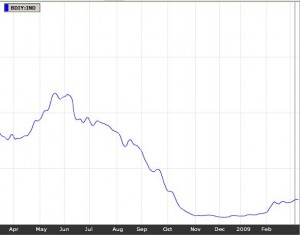I’m pretty sure anyone who’s tangentially related to the music industry is contractually obligated to weigh in on the Great NPR Stealing Music Fiasco of Ought-Twelve.
So here are my thoughts, in response to Jonathan Coulton’s very interesting ruminations. This was originally left as a comment on his post, but it’s pretty much guaranteed to be buried, so…
Thought experiment for the Free-Culture and anti-copyright folks out here: Let’s say you make something. You distribute it digitally. And because you believe in Free Culture, you insist that it be distributed for free.
Then someone starts charging for it.
How does that make you feel? Do you feel that you, as the creator, have the right to determine how your creation is distributed?
I think even more than a practical issue — which, let me be clear, is certainly a big issue — this is an issue of principle. How would you feel if the foo was on the other shoot? Not great, I suspect.
–
But there’s also a practical element that doesn’t seem to be talked much about. There are a lot of Free-As-In-Beer flag-wavers outraged that the gub’mint might step in and knock out file-sharing centers. “What right,” they demand, “does the government have to determine how culture should be shared?”
But here’s what confuses me: What right do the flag-wavers have to determine how an artist’s work should be shared? Do you presume to know better than the creators of the works how their work benefits them, or benefits society?
We talk about “the music industry” as though it’s this faceless monolith. But the facts are (as usual) a lot messier. Yes, some artists can make a living on the road, and giving away their music (or allowing it to be given away) benefits them. But there are musicians for whom this is exactly reversed: Live performance earns nothing; music sales and licensing are everything. Most are probably in the middle. But are we going to insist that all musicians take it on the road, or give it up? Seems kind of counter-productive to the goal of diversifying art and encouraging experimentation. Do we really want a world where only the one percent (if you’ll pardon the allusion) of musicians can make a decent living?
People, think this through to its logical conclusion. We live in a world where money is necessary. The less money that can be made by making music, the fewer musicians we’ll have. Yes, there will be the super-successful, there will be the ones who do it for love alone, and there will be those — like our esteemed host — who find their own niche and make it work. But I don’t see how it can be denied that fewer rewards for making music will ultimately result in fewer musicians. Is that really what we want? Is that the price we’re willing to pay for “free” music?
Personally, I’d rather pay Mr. Coulton than get Rebecca Black for free.
Am I alone in thinking this way?
For more of my thoughts on the matter, you may be interested in this post from a few years back.

